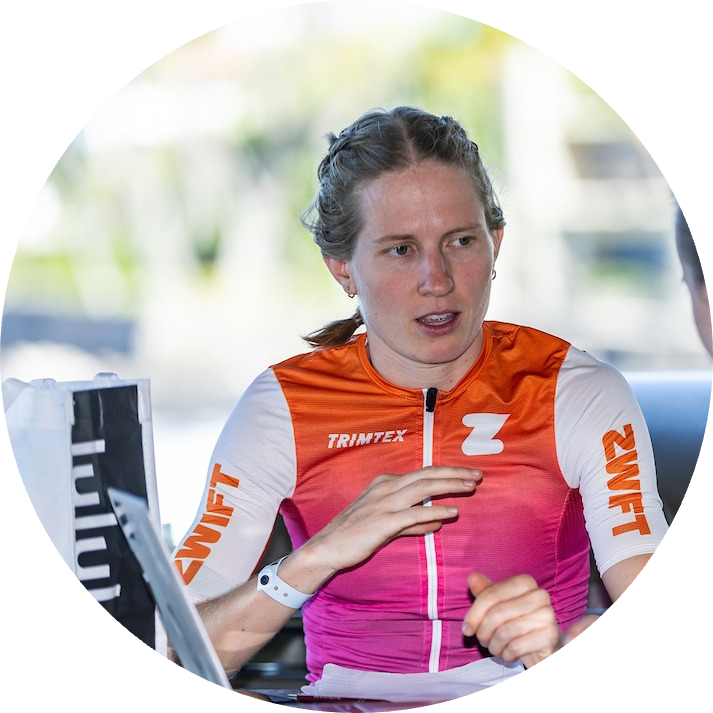
Livia Eggler
IRONMAN® Switzerland
Livia's headline numbers
Livia's strategy
Fueling
Carbohydrate is the main fuel you burn when racing. Failing to fuel properly is a leading cause of underperformance in longer races.
Livia has struggled previously with taking the amounts of carbohydrates that the literature suggests is optimal for a race of this duration and intensity, largely due to (what she describes as) being a “pocket rocket” at just ~47kg (103lbs). She has, however, been undertaking some rigorous gut training in some of her long, race-specific training sessions to help increase her tolerance. This enabled her to consume ~64g of carb per hour on the bike which equates to ~1.4g per kg of bodyweight, and is an impressive intake. On the run this intake fell by 24% to ~49g per hour, which is still greater than 1 gram per kg. Livia felt her energy levels were “superb” on the bike and most of the run but she did experience a dip in performance towards the end of the marathon, which she believes was due to her low run mileage as a result of a recent injury.
Hydration
Taking on board an appropriate amount of fluid and sodium is essential to maintaining blood volume and supporting the cardiovascular effort needed to perform on race day.
Whilst the absolute amount of sodium and fluid consumed per hour is important, it’s critical to consider these in relation to each other. This is known as 'relative sodium concentration' and it’s expressed in milligrams per litre (mg/L). How much sodium you’re taking in per litre of fluid is more important than the absolute amount taken in per hour.
Sweat sodium concentration (mg/L) is largely genetically determined and remains relatively stable. Knowing how salty your sweat is enables you to replace a good proportion of your sweat losses, which can range from 200-2,000mg/L.
Given Livia’s losses are High (1,290mg/L), nailing her hydration strategy becomes especially crucial when it’s hot and/or humid.
Learn moreAhead of the race, Livia spent several weeks getting familiar with the concept of preloading to arrive at each of her long training sessions optimally hydrated. She employed the same tactic the night before her race and again alongside her race-day breakfast. Livia knows her sweat is salty, so was very aware that matching this concentration (1,290mg/L) with her drinks would help her stay hydrated during the race. On the bike, Livia did this well, but Livia’s sodium concentration did drop significantly during the run as she increased the quantity of water she picked up from aid stations, in an attempt to combat the rising temperatures. Despite running out of T2 with a Soft Flask of PH 1500 the further ~1.6L of plain water she drank throughout the marathon meant her relative sodium concentration fell to just ~373mg/L (mg/32oz). By preloading and maintaining a solid concentration on the bike, Livia didn’t experience any negative side-effects, but should look to maintain the concentration in future IRONMANs, especially in the heat.
Caffeine
Beyond the Three Levers of Performance (carb, sodium and fluid), caffeine is one of only a few substances that is proven to improve performance for most endurance athletes as it can help stave off mental and physical fatigue.
Livia’s caffeine intake sat a little higher than the recommended intake to induce the most ergogenic benefits. As this is only slightly over the recommended range of 3-6mg/kg and Livia didn’t experience any negative effects, we wouldn’t recommend Livia alters anything here.
How Livia hit her numbers
Here's everything that Livia ate and drank on the day...
Livia's weapons of choice
Final thoughts
Livia's full stats
Data Confidence?
There is an adequate level of accuracy in the data collected and the numbers reported. The athlete manages to recall what they ate and drank including most specifics (brands flavours quantities plausible estimations of volumes). However there are estimations made within the data which affect the overall confidence level in the data reported.